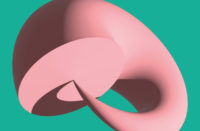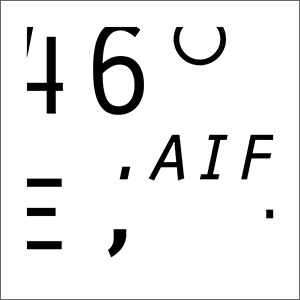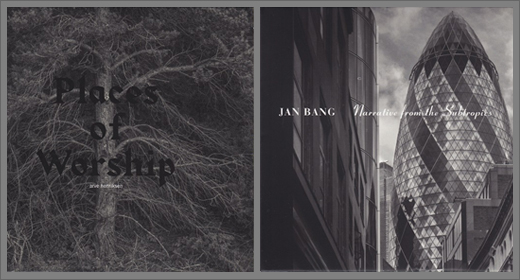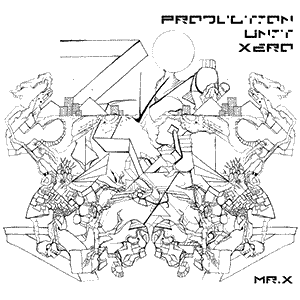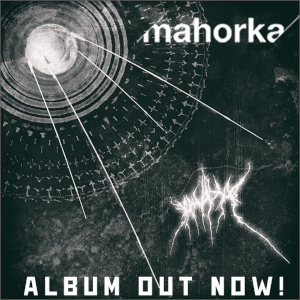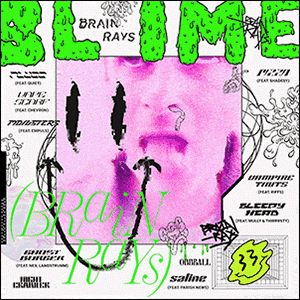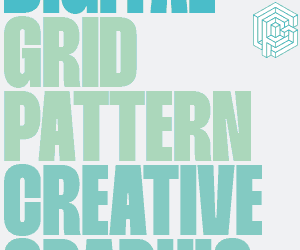Jan Jelinek will be known to most as either Farben or Gramm. After several Farben 12″s on the consistently excellent Klang Elektronik, last year he released a full length as Gramm on Move D’s Source Records. The fourth Farben 12″ came out during 2000, as well as tracks as both Gramm and Farben appearing on other hip labels of the moment such as Mille Plateaux and ~scape.

Jelinek’s Farben Featuring the Dramatics 12″ and Gramm ‘Personal Rock’ album were musical highlights of 1999 for me. Both documented the creation of something quite distinct, developed in an apparent middle-ground between process-focused digital exploration and the solid grooves of German house.
I interviewed Jelinek in July. Email was the order of the day, as it was more practical than organising a phone call from my place in Wellington, New Zealand to his in Berlin, Germany, across hemispheres and language barriers. Trying to get to the bottom of how Jelinek reached the sound he has today, and curious as to where he saw his own music (not) fitting in, I opted for the easiest place to start: the beginning.
Igloo: How did you start writing music?
Jan Jelinek: I’ve been into listening to music since I was a child… I spent all my pocket money to buy records. Later on all my friends were also deep into music and making music. So access to instruments, especially electronic instruments, was quite normal. When I made my first tracks I didn’t even recognize them as music-producing.
MU: Are there any direct musical influences that have lead you to what you do now?
JJ: I listened during all my teenage years to Lee Perry dub and rare groove. I always thought that I was the only one who liked Perry music, because all my friends were bored with it. So my influence is “black music” as much as electronic music. My first house party experiences in my hometown influenced me too. They were organized by a Chilean guy called Ricardo Villalobos. Now he’s producing for many labels [eg. Playhouse, Perlon, Frisbee]
Igloo: What motivates you to write?
JJ: When I listen to nice records, and they’re begging to be sampled, I’m really motivated. Everybody knows the problem with songs which have a few seconds of brilliant arrangement, and you love the tracks just for those few seconds. I try to pick specifically those few seconds and expand them to minutes.
Igloo: Do you listen to much music yourself? What sort of things do you enjoy? I’ve noticed, for instance, references to the funk group the Dramatics, and bits of what sound like sampled double bass on ‘Personal Rock’. There are even some quite disco percussion sounds on some tracks, particularly the A side of ‘Featuring the Dramatics’.
JJ: OK, I must admit that disco and funk music are of great importance to me. As I said before, rare groove is my biggest sample-source. I also love those cheesy disco tracks the way they were produced in the 70s. Maybe you can hear the percussion / disco-shots as a reminiscence on this kind of music. As for the Dramatics, they are responsible for one of my favourite tracks ever, “Watcha Do Is Watcha Get”, but don’t worry, I haven’t sampled it yet.

Igloo: Gramm and Farben: different names for different labels? What if anything separates the two projects? Farben sounds to me more techno and more dancefloor than Gramm.
JJ: To tell you the truth, there’s not really a difference between these projects for me. I produced both at the same time and in the same way. Besides my Farben project on Klang I wanted to release on a different label, because during the last 2 years a lot of tracks had come together. I think the label preferences correspond with the finished products. Farben is more dancy, cause the guys of Ongaku Music are really into the German house scene. Gramm is more laidback, a kind of home listening, because Source Records is famous for atmospheric lounge music.
Igloo: With that in mind, and considering releases like the Mille Plateaux compilation ‘Clicks and Cuts’, I was wondering whether you feel part of a larger scene or more like you are doing something quite different. I often read references to you that focus on the pops and crackles. Basically, you seem to get compared to people like Pole and Oval more often than, say, Roman Flugel’s aliases. Where do you feel your music fits?
JJ: First of all, a compliment to your sharp witted observation. You’re right in supposing my position near Pole and the so called clicks and cuts scene. At least a large number of music journalists integrate me into that scene. Maybe it’s because as a producer I have the same image: I produce a kind of non-dancefloor music in nearly the same aesthetic as Mille Plateaux’s clicks and cuts. This is no surprise, really, as I also like SND and similar artists in the same way as I do house producers and producers like Roman Flugel. Nevertheless, many reviews label me as a part of that scene, but say I’m different, in a “groovy” way. Maybe it’s a problem, not entirely becoming part of one of these two scenes.
Igloo: In reviews of your music, critics do often use words like “warmth” and “soul” to describe your sound. What do you think about emotional music? Is it important for your music to bring up strong feelings in people?
JJ: Am I doing that? Nice to hear that you feel like that. Of course I like emotional music, especially pathetic love songs. And I think the fact that I produce electronic music is no contradiction. The strong emotions, like in performances by singers like Terry Callier, Curtis Mayfield and so on can also be arranged in electronic music. Whatever you like. You have very sensitive tracks and also very ecstatic tracks. Possibly I’ve had the most ecstatic experiences in hearing electronic music. I think the reduction and concentration of the essence, along with the permanent repetition of it, becomes an explosive moment of ecstasy and trance. Trance in a good way, like a James Brown concert atmosphere or something.
Igloo: So, what do you do outside writing music? Do you feel like music is a large part of your life? How much of your time would you spend writing music?
JJ: Of course music is a large part of my life. All my interests revolve around music. I try to spend all the time I have producing, but it’s a pity that I need so much time – sometimes 2 days – for just one track. Besides that I’m studying philosophy and sociology. Maybe I will finish my studies in 2 years?
Igloo: Modern electronic music has become a remix culture, but I don’t remember seeing any remixes of your material, nor you remixing anyone else. Is it simply something you are not interested in doing?

JJ: Of course I am interested. Just now I’m working on some remixes… [eg. Lynx (on Out to Lunch), Auch (on Force Inc)]
Igloo: What about performing? Do you play your music out anywhere? What about DJing?
JJ: I’m not a DJ, but I have a sexy performance with many girls in bikinis? No, I’m just kidding. But I do live perfomance in the typical way: it’s an arrangement with a mixing console, drum synthesizer and sampler. The tracks are more in a dancing, Farben style. No, I’m wrong, you can’t actually dance to them, but maybe move your hips. It’s the old problem I told you before.
Igloo: What’s next for you?
JJ: In the next two months Klang will release the next Farben EP, called ‘Beautone’. I think there will be no surprises in hearing it. My next project will be released Spring next year. It’s under my real name, and will be a longplayer called “Loop Finding Jazz Records”, released on ~scape music. You can compare the sound to the Gramm project, but it’s more beatless. Like the name says, the sample sources are only jazz records from the 60s and 70s. The arrangements are very reduced, just focused on removing obvious loop points. It will be a conceptual project, trying to translate the op-art moiré paintings into music, so watch out! In November a preview EP will be released.






